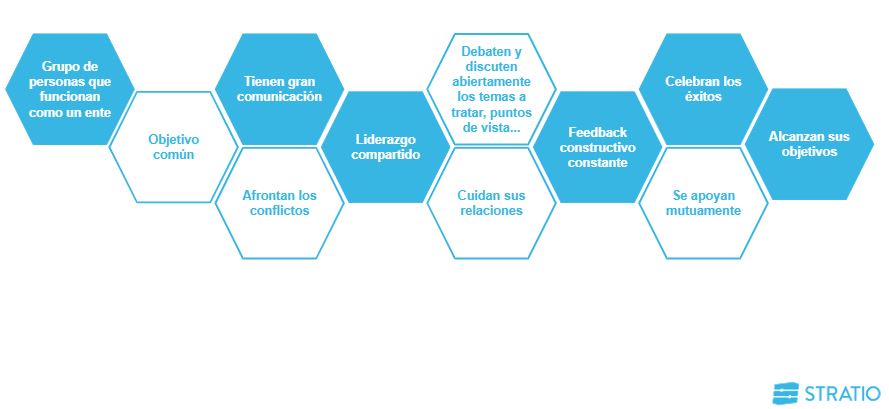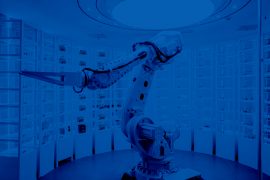Talent is that word we say several times a day and what companies fight for, particularly those in industries where – unfortunately – it is scarce.
Talent is something one is born with – but also something that one nurtures and grows, especially in the particular case of work environments. Individual talent in a collaborative culture – something which should be the norm in the technology industry – is however in short supply; in fact, it can even be counterproductive.
Superhuman technical skills vs teamwork
Surely many of us have seen teams of stars with superhuman technical skills that yielded results that were way below what was expected of them. Egos, no team spirit, a poor knowledge of the working framework or an unwillingness to work together, among many other things, cause teams a lot of heartache and lead to poor results and low morale.
Of course, this is not something new. We already knew that teamwork is the cornerstone of success for companies, but the fact is that many of them cannot seem to overcome the obstacles that keep teams from running smooth as clockwork.
At Stratio we have been striving for a while now to boost our teams’ performance and to come up with our own methodology for achieving this. We dubbed our methodology SMART TEAMS.
But what are SMART TEAMS?
SMART TEAMS aims to bring two worlds together: personal growth and the agile working framework. We believe both aspects are necessary for teams to simply work and be sustainable over time.
In the following diagram you can see what a high performing team is for us.

In summary, a SMART Team boosts the motivation of its members and encourages them to grow, works according to healthy, trust-based internal dynamics, resulting in a good work environment, and allows its members to communicate efficiently and effectively. All these things have a highly positive impact on the team’s quality and productivity. In a word, its members get better results whilst working more comfortably and maintaining high energy levels, and share a feeling of belonging, a purpose and a commitment. Sounds good, doesn’t it? Now, we would like to tell you how you can reach this SMART state!
Team methodology: high performance & systemic approach
We always knew we were going to use a systemic approach to boost performance by focusing on acquiring soft skills (communication, negotiation, self-criticism, openness…) and getting better at applying the working framework.
A systemic approach is integrative by nature, i.e. it works with all the elements, interactions and interdependencies of the system being studied. We are not interested in personal achievement but on the power a system, which is sometimes complex and others imperfect, is capable of attaining when it runs smoothly.
A SMART process is supported by 4 pillars:
- THE RULES: The starting point is to understand the importance of having some common working rules to enable the team to apply the working framework judiciously.
- THE ROLES: Identifying all the roles, their positions and their interactions in a team and making sure they are understood by all will help us to detect potential imbalances, redundancies or bottlenecks that will slow the team down. All growth in life starts by getting to know oneself…
- THE DYNAMICS: Encouraging the team to transition from a state of inertia where all team members drift like leaves to agreed-on, aware dynamics where the rules that govern the team are decided by all its members.
- THE CULTURE: Integrating the knowledge of agile working frameworks that rely on a people-focused, adaptation-orientated culture is key to instilling the proper culture in the team. Hence, we will be able to adapt to the team’s needs and develop essential skills for collaboration and effectiveness purposes.
Phases of the SMART process: diagnosis, intervention and evaluation
We will start by diagnosing the team to get a first impression thereof. This way we will be able to know the state it is in and find out its strengths and weaknesses. Next, we will identify the leaders in the group and assign roles. Finally, we will draw conclusions about the way the team is applying the working framework.
At the end of this phase, we will give the team a report showing the results of the diagnosis and points of action on which it must work. In order to be allowed to move to the next phase, the team must show its willingness to work together and its involvement with and commitment to these points of action.
This kind of process only works if the teams take charge of their own development. As facilitators, we can provide the team with tools, takes, concepts and dynamics and help it to see some of the things that happen inside it, but in the end it is the team itself which is ultimately responsible for its own growth or change.
Once the diagnosis is complete, we move to the intervention phase. In this phase we monitor the team and help it to develop around the action points we set out in the diagnostic report.
We basically do the following things:
- Shadow coaching: It consists in monitoring the team and attending its meetings to make sure it is properly applying the working framework and adapting it to what it needs. During these meetings we also take an opportunity to help the team to develop.
- Training:
○ Skills training: stress management, effective communication, delegated meetings, distinctions and all those topics that can help the team to mature.
○ Training sessions on the working framework.
- Workshops:
○ Team configuration, degrees of involvement and points of action.
○ Team alliance.
○ Team vision.
○ Constructive criticism.
Lastly, we assess the team and present it with our final report on the process we have undergone with it. This report is a complete document that expounds on the following aspects:
○ The team’s diagnostic and the points of action we have agreed with it.
○ The sessions we held with the team and the results it obtained.
○ Our final opinion on the team’s progress and our recommendations for future growth.
As you can see, a SMART team process is very thorough indeed. Its purpose is to raise awareness among team members, encourage then to change, and help them acquire new habits and skills. This requires several sessions, intense support and time – which sometimes we feel we cannot spare. We always say, however, that every minute of time we spend improving a team yields a valuable and sustainable return. We are investing in future performance and talent.
It’s not about the agile framework. It’s about less ego and more soul
To wrap things up, we would like to share a thought with you. Leading companies want to work with agile frameworks and mature, self-organized teams but often forget that people come from very different – even conflicting – backgrounds. Many of us have been educated in passive academic environments. Others come from hierarchical companies, hostile cultures or hardly collaborative working environments – not to mention those professionals who have had a purely technical education where humanities were an afterthought and have not been taught communication, emotional management, negotiation and cooperation skills, among others.
This is why it is important to promote a thorough understanding of the working framework, using tools and strategies to make this happen in each team whilst at the same time helping its members to grow as individuals so that they can reach the level of maturity and strength of character demanded in working environments that strive for excellence.
We hope to have piqued your interest. If you would like to find out more about SMART teams, it’s simple, just come work for Stratio.
We hope to see you soon. Be SMART.





